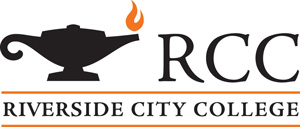
Led by Project Team Members:
Wendy McEwen, Dean of Institutional Effectiveness
Mia Armenta, Student
Emily Escoto, Student
Joudi Sawas, Student
Project Title: Amplifying Student Voices—Riverside College’s Student Street Team
Project Description: In an effort to become more student centered, the Office of Institutional Effectiveness at Riverside City College (RCC) includes a three-student Street Team. These student workers provide valuable, direct feedback to inform planning, communication, student equity, and how to better connect students with RCC’s supports. Having students embedded in the Office of Institutional Effectiveness (IE) has encouraged more student-centered research and several “aha” moments. The students have helped staff collect and share student feedback, amplifying student voices. They have also created solutions to some of the gaps they have identified.
The Street Team project began in fall 2022 as a partnership between IE and marketing. The Street Team shared direct feedback on how the college can better communicate with students in a wide variety of areas including catalog design, website and social media, and helping students connect classes to careers.
As the Street Team’s role evolved, it began collecting student feedback via weekly surveys. These surveys have helped inform the college about student perspectives on a wide variety of topics including student–professor communication, study habits, preferred messaging methods, and enrollment in transfer-level math and English.
When the Street Team’s efforts identify gaps, the team works with college employees to create student-centered solutions. For example, the Street Team identified that students need to be more aware of available supports. Working with marketing and graphics, they created a “Student Wealth Map” with support locations and QR codes. Another example is when the Street Team worked with marketing to create short videos about campus academic supports.

Led by Project Team Members:
Dr. Jacqueline Hester, Dean, Child Development Emeritus, San Diego College of Continuing Education
Marc Grabiel, Research and Planning Analyst, San Diego Community College District
Dr. Masahiro Omae, Dean, Behavioral & Social Science, Consumer and Family Services, San Diego City College
Amertah Perman, Dean, Workforce Development, San Diego Community College District
Rachel Rose, Faculty/Department Chair, Child Development, San Diego College of Continuing Education
Project Title: Noncredit to Credit Alignment Lab—A Framework to Equity for Noncredit Students
Project Description: The primary goal of the Noncredit to Credit Alignment Lab (NCAL) at San Diego Community College District (SDCCD) is to foster a culture shift that recognizes noncredit students as valuable contributors to the educational system and eliminates any institutional barriers that impede their progression to credit-bearing colleges. The initiative seeks to address the systematic inequities that have historically marginalized noncredit students by implementing the core principles of the NCAL framework: (1) treating all students as students, (2) building pathways between noncredit and credit credentials, (3) aligning departments and governance, (4) making programs credit worthy or credit based, and (5) removing barriers to transition.
The initiative utilizes a mixed-methods approach to gather data and insights at the local level. Since spring 2022, the Office of Institutional Effectiveness and Research has played a pivotal role to ensure that the application of the NCAL framework was data informed. Traditional and nontraditional research methods were used to describe the noncredit student experience. This includes qualitative methods to understand the lived experiences of noncredit students, quantitative methods to analyze patterns and trends, and mapping student journeys or curriculum.
The project focuses on noncredit students within SDCCD but has impacts for all students. The stakeholders involved are diverse, encompassing faculty, administrators, and support staff from across the district. Any community college that offers noncredit courses can benefit from the project’s findings, particularly those with noncredit Career and Technical Education (CTE).
Key Findings:
-
Critical Areas of Support: The project has identified three critical areas of support for noncredit students: (a) early outreach, (b) onboarding support, and (c) comprehensive support services. Recognizing the specific needs of noncredit students in these areas is crucial for creating an inclusive and equitable educational environment.
-
Culture Shift and Leadership: The NCAL initiative has evolved from a lab to a leadership model, indicating transformative change in the institutional approach toward noncredit students. This shift has been driven by the success and potential uncovered in the initial implementation, particularly in the child development department.
-
CTE Pathways Expansion: SDCCD expanded from two CTE pathways to an additional six. This expansion showcases the exciting potential and positive impact on students, encouraging the integration of noncredit and credit pathways across various fields. However, there are some pathways that provide challenges to expansion, such as Nursing.
-
Pathway Alignment: Each CTE pathway has a unique decision-making process by noncredit students as well as a post-secondary educational opportunity. Certain institutional practices can be improved through NCAL’s core principles, but the interests and outcomes of specific pathways cannot have a one-size-fits-all approach or vision of successful alignment.
-
Data-Informed Decision-Making: The insights gained through mixed methods have not only validated the need for change but also provided a foundation for ongoing improvements in serving noncredit students.
The Noncredit to Credit Alignment Lab at SDCCD is making significant strides in promoting equity, diversity, and inclusion by treating noncredit students as integral and valuable parts of the educational community. The project's success lies in its comprehensive, collaborative, and data-informed approach, leading to tangible improvements in support services and pathways for noncredit students.